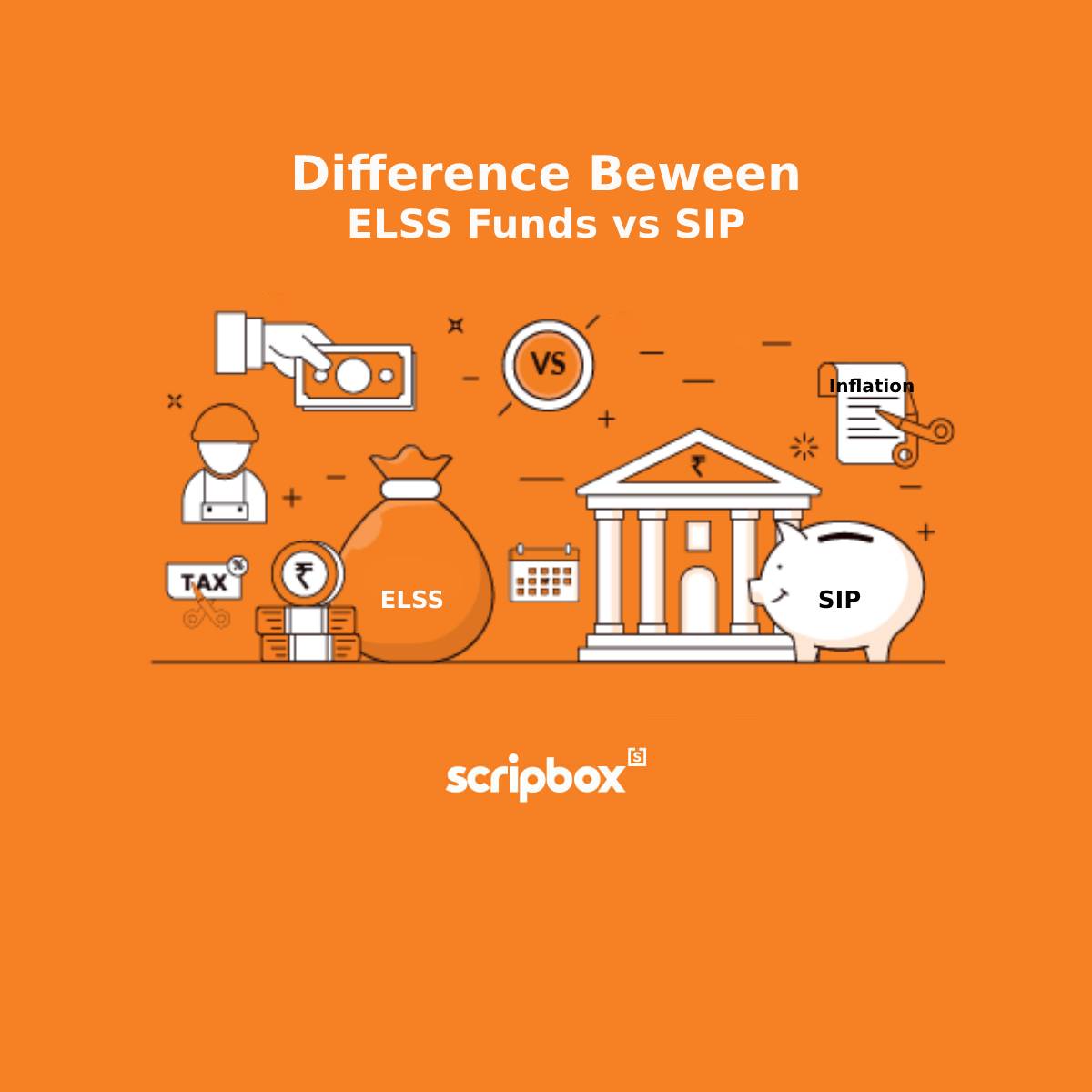What is Liquidity?
In simple words, liquidity of any investment or asset refers to the ability or ease with which it can be converted into cash. Moreover, cash is the most liquid asset that an individual can hold. Simply put not every asset will have the same level of liquidity or ease of conversion. For instance assets like real estate would take a longer period of time to be converted into cash.
On the other hand, long-term investments might have restricted liquidity. In India, PPF investment is a fine example of restricted liquidity due to its lock-in period. No doubt early withdrawals are allowed but with premature withdrawal penalties. Examples of liquid investments with ease of conversion are mutual funds, stocks, bonds, and money market instruments. A liquid asset provides an added advantage of the capability to encash at any time. However, it also comes with other factors like return, associated volatility, and so on.
Why is Liquidity Important?
Liquidity is the power of being able to convert and spend. Hence, it is important if an investor wants the availability of funds to spend. Needless to say, it is crucial to plan liquidity before investing and making sure of the availability of funds when in need. Many investors neglect to plan for unexpected emergencies that can happen at any time. They mostly focus on securing their future and ignore safeguarding their immediate unexpected requirements. In absence of liquidity an investor might have to redeem their long-term investment plans.
Maintain a Cash Reserve for Emergencies
Liquidity makes sure that you have enough cash to fund your financial emergencies. Recent times like Covid-19 have taught a valuable lesson which is uncertainties in the world. There might be a medical emergency for which you need your funds overnight. An investor might need to fund a sudden expense for which he or she did not account earlier. Hence, liquidity makes sure that you are covered with your cash reserves. This cash reserve need not be just a bank balance in a savings account. An investor can invest in options such as mutual funds, stocks, and bonds. Furthermore, how much amount should be invested depends on the investor’s lifestyle, take-home salary or income, and existing portfolio.
Maintain Balanced Portfolio
The two types of assets are liquid and illiquid assets. If an investor invests only in liquid assets he or she might expose their portfolio to lower returns and higher associated risks. For instance, an investment in mutual funds or stocks provides a higher degree of liquidity. However, they are coupled with higher associated risk and higher potential returns. On the other hand, illiquid assets might have the potential to provide higher returns. However, it will be a timely process to convert into cash. One such asset is real estate. To conclude, every investor must have a balanced portfolio of liquid and illiquid assets. This way there is a balance between opportunities and the availability of funds.
Avoid Penalties and Retain Investments
If you redeem your long-term investments which are subject to a lock-in period then you have to pay a penalty. This penalty could be in the form of a deduction in the interest rate or an upfront payment of a fee. In any scenario, an investor has to forego a sum to access liquidity. These long-term assets such as NPS, PPF, SSY, and FD retain their principal value. You will always receive your principal amount, but receive lower interest for premature withdrawals. Hence, liquidating these assets would not be wise in order to fund an emergency. Hence, having a liquid asset would be a better option and allow the long-term assets to remain invested.
What is Liquid Asset?
A liquid asset is an asset that can be easily, quickly and securely sold and converted into cash in hand. In other words, liquid assets are seen as cash, as their value remains more or less the same when sold. Furthermore, to classify an asset as a liquid asset, it must be in an established market and with a large number of interest buyers. Also, with an ability to transfer the ownership easily.
Following are the types of assets that qualify as liquid assets:
- Cash is a liquid asset due to its ability to be readily assessed.
- Cash Equivalents, these are investments with short term maturities of less than 90 days. They can be easily converted to cash—for example, stocks, marketable securities, money market instruments, bonds, mutual funds etc.
Recording assets in a balance sheet are categorised based on how liquid they are. Following are examples of liquid assets:
- Currency or cash
- Money in a bank account
- Account receivables
- Mutual fund investments
- Money market accounts
- Stock market investments
- Treasury billsBonds
- Notes
- Certificate of deposits
- Prepaid expense
Liquid assets are necessary because, in case of emergencies, they act as the safety net for an individual. Financial experts often advise that one should have an emergency fund that covers at least six months of expenses. The emergency fund should mainly cover all the expenses such as bills, medical, repairs, etc.
Examples of Liquid Assets
Cash
Physical cash or currency that you hold in hand.
Mutual Funds
A mutual fund is an investment instrument that pools capital from investors to purchase equity, debt securities, government securities, and other assets. Mutual funds are managed by a portfolio manager designated by the fund house.
ETF’s
Exchange-traded funds (ETFs) are passive investment vehicles that mirror the underlying index in exact proportions. The fund manager doesn’t have to manage the portfolio actively. ETFs have no intention of outperforming their respective indices.
Money Market Funds
This form of mutual fund invests in highly liquid, short-term investments, such as cash and cash equivalents and high-credit-rating debt-based securities with a short-term maturity.
Bonds
A bond (fixed-income security) is an obligation representing a loan from an investor to a borrower. Companies issue bonds as units of corporate debt that are securitized as tradeable assets.
Stocks
Stock is a security that reflects partial ownership of a corporation. It is also referred to as equity. The equity holders are entitled to the company’s profits. Typically, firms issue shares to raise capital.
Certificate of Deposit
The certificate of deposit (CD) is a contract between depositors and an approved financial institution or bank. This contract is for a set time period, and a specific amount of money has to be invested, on which the financial institution pays interest.
Treasury Bills & Treasury Bonds
T-bills are money market products with a short duration. It is a promissory note with payment assurance at a future date. These have zero coupon rates, meaning they do not accrue interest. T-bills can be purchased at a discount to their face value and redeemed at face value, allowing investors to profit from the difference.
Precious Metals
Precious metals are metals that are scarce and have a high economic worth for a variety of reasons – scarcity, usage in industrial operations, hedge against currency inflation, etc. Gold, silver, and platinum are the popular precious metals among investors.
Money in Bank Account
Money held in your savings bank account or current account.
Accounts Receivable
Accounts Receivable (AR) refers to the proceeds or money that a business will receive from clients who have purchased its goods or services on credit. Typically, the credit period is brief, ranging from a few days to a few months and, in other instances, up to a year.
Prepaid Expense
Prepaid expenses are future expenses, such as rent or insurance, that are paid in advance. These expenses are first recognized as an asset on the balance sheet. As its advantages are realized over time, the corresponding amount is recorded as an expense.
What are illiquid assets?
An illiquid asset is one that cannot be resold quickly without a substantial loss in value. In other words, an illiquid asset is one that lacks a ready pool of purchasers. Thus, the seller may be forced to sell it at a discount if funds are required immediately.
Real Estate
Real estate is the most popular illiquid asset. The land has enormous value, but it takes time to transform that value into cash through a sale. The owner could, at best, try to hold a fire sale by slashing the price until they find a buyer, but this would entail accepting a substantial loss in value.
Private Equity
If you are able to invest in private equity assets, such as venture capital or funds of funds, you have the opportunity to generate substantial returns. However, private equity groups frequently impose stringent limits on the timing of share sales.
Stock Options
Not just tech start-ups but numerous businesses provide stock options as part of a bigger remuneration package. Typically, a new employee is promised a certain amount of company stock if they stay with the company for a certain duration. Stock options can be quite profitable. However, they are extremely illiquid assets because you must continue with the company for years before you can acquire the guaranteed shares.
Collectables
This category includes artworks and collectables. Despite the fact that they may have considerable worth, finding a buyer may be time-consuming. Therefore, you cannot rely on readily converting these assets into cash.
Intangible Assets
Intangible assets are thoughts or ideas that have a substantial amount of value. Examples of intangible assets are company intellectual property, brand recognition, goodwill, and reputation. It may be difficult to assign a market value to an intangible asset because they are extremely illiquid in nature.
Is a bank account a liquid asset?
Liquid assets are cash in hand or other assets that can be easily converted into cash at a reasonable price. A bank account is considered a liquid asset as long as the balance in a bank account can be withdrawn without any restrictions. Money in a bank account can be readily used to meet expenses. Hence it is considered as a most liquid asset.
However, a certain bank account has restrictions on withdrawing money. For example, certain fixed deposits and recurring deposits do not allow premature closure of the account to meet financial liquidity. At the same time, some accounts allow premature withdrawals, but with some penalty. As an individual, one should be holding cash in accounts that can be readily withdrawn when required. A savings bank account is one such account that is equivalent to holding cash in hand. Therefore, having some amount in the savings bank account will help in meeting unforeseen expenses or emergencies.
What does liquid net worth mean?
Liquid net worth is the value of all assets if sold and converted into cash. The liabilities have to be deducted from the assets before they are liquidated. Also, liquid net worth considers only liquid assets. These assets are extremely valuable. This is because one can easily convert them into cash in case of any emergency. Moreover, liquid net worth is a measure that helps evaluate financial security. Stocks and bonds are an excellent example of liquid assets as they can be converted into cash within three days.
One can calculate liquid net worth by adding all liquid assets and subtracting liabilities. One can consider the following as liquid assets:
- Cash: Cash is the most liquid asset. It includes all bank accounts (savings and current).
- Stocks, Bonds and mutual funds: All these assets can be easily liquidated into cash within 3-5 working days.
- Retirement investments: Any retirement investments can be omitted, or a reduced value can be considered.
- Real assets: One can consider real assets like car and house as liquid assets after deducting 10-20% from the assets.
- Jewellery, collectables, art, antiques etc. are all can be considered at the same value.
Liabilities have to be deducted from the assets to calculate liquid net worth. One can consider the following as liabilities.
- All loans including personal loans and student loans
- Mortgage
- Credit card debt
- Any other type of debt
What is a liquid account?
A liquid bank account is that account that is not subject to any withdrawal restrictions or deductions. A current bank account and savings account is a liquid account as it can be used for regular transactions. In comparison, other assets like certificates have a specific duration and maturity date.
While picking an account, it typically is a trade-off between yield (the interest that one can earn on their money) and liquidity. Higher the liquidity, lower will be the yield. For example, savings and current accounts are highly liquid. At the same time, the certificate of deposits is less liquid. These attract certain charges and penalties for early withdrawals.
Liquidity is important to meet day to day and unforeseen expenses. If one has to wait for a couple of days to withdraw money for paying bills and shopping, then it is a big headache. To meet unseen expenses such as planning a short vacation or a surprise, a liquid account is the best option. It is better than using credit cards or other expensive options.
Also, due to lower yields, it is not advisable to hold all the saving in liquid accounts. To be able to generate significant returns and make money grow, it is important to invest wisely. Therefore, have an emergency fund for unforeseen events and invest the rest in high earning accounts even though they are not highly liquid.
What is the difference between assets and liquid assets?
An asset is a resource that has economic value that an individual or company owns. It provides future benefit in the form of cash flows to the individual or company. An asset can be a fixed asset or current asset. Fixed assets are long term assets and cannot be easily liquidated into cash. Whereas current assets are those assets that can be easily converted into cash within one year. Liquid assets are a part of current assets. Few examples of assets include land, buildings, cash and investments.
Liquid assets are those assets that one can easily convert into cash. They are highly liquid and can aid in times of emergency. Liquid assets are cash, investments like stocks, bonds and mutual funds.
READ MORE
- What is expense ratio
- What are stocks
- What is annual return
- What is annual yield
- What are different types of investment
- Liquidity Trap
Frequently Asked Questions
Liquidity is the ease with which an asset can be acquired and sold on the secondary market. A liquid asset is one that has numerous potential purchasers and may be sold quickly without incurring significant fees. An illiquid asset is one that lacks a ready pool of purchasers. Thus, the seller may be forced to sell it at a discount.
A liquid asset is one that can be quickly and readily converted to cash. The more easily an asset can be converted into cash, the more liquid the asset is.
Yes, a bank account is a liquid asset. You can easily access the money in your bank savings account or current account. You can withdraw the money by going to an ATM or bank branch or simply through online banking. Thus, the bank account is a highly liquid asset.
Yes, gold is considered to be a liquid asset as it can be easily converted to cash. Due to high demand and a greater number of buyers available at any time, gold is a liquid asset.
Yes, stocks are liquid assets since they can be converted to cash in a very short amount of time. Therefore, in case of financial emergencies, you can easily liquidate your stocks on the exchange.
- What is Liquidity?
- Why is Liquidity Important?
- What is Liquid Asset?
- Confused if your portfolio is performing right enough to meet your goals?
- How long have you been investing in mutual funds?
- What is your current portfolio size?
- What is your approximate annual household income?
- Your profile does not qualify for a call with a Financial Expert.
- Examples of Liquid Assets
- What are illiquid assets?
- Is a bank account a liquid asset?
- What does liquid net worth mean?
- What is a liquid account?
- What is the difference between assets and liquid assets?
- Frequently Asked Questions























Show comments